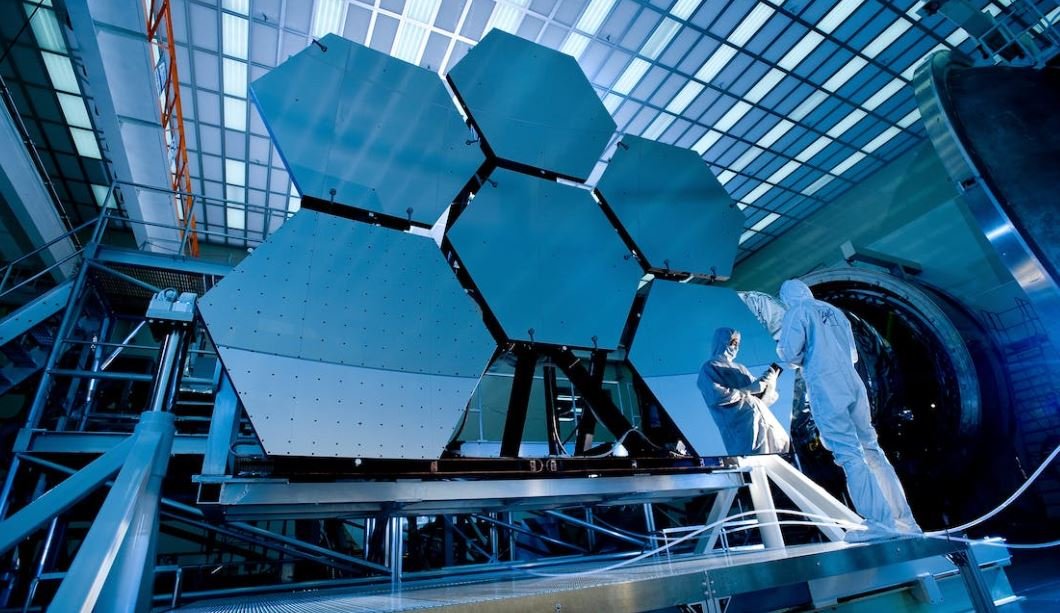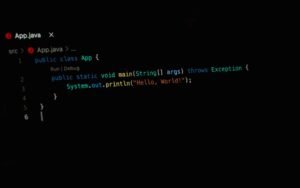AI Singing Voice
Artificial Intelligence (AI) technology has rapidly advanced in recent years, revolutionizing various industries. One area where AI has shown great potential is in creating realistic and convincing human-like singing voices. With AI algorithms and deep learning techniques, developers have been able to teach machines to imitate the human voice with incredible accuracy.
Key Takeaways
- AI technology enables machines to produce realistic and human-like singing voices.
- Deep learning algorithms are trained on massive amounts of data to mimic the nuances of human vocal expression.
- AI singing voice has implications for music production, entertainment, and accessibility.
Evolution of AI Singing Voice
As AI technology has advanced, so too has the development of AI singing voices. Early attempts at creating synthetic voices often sounded robotic and lacked natural nuances. However, with the advent of deep learning algorithms, machines can now analyze and replicate the subtle intricacies of human vocalizations. By training AI systems on vast amounts of data, including recorded voice samples and musical performances, developers have been able to create remarkably realistic singing voices.
**AI algorithms now have the ability to synthesize singing voices that are virtually indistinguishable from those of human performers.**
The Process Behind AI Singing Voice
The process behind AI singing voice involves several steps that allow the technology to imitate the human voice convincingly. Firstly, a large dataset of singing and speaking voices is collected. This dataset is then used to train the AI algorithm through a process known as deep learning, where the machine analyzes patterns and learns from the data. The algorithm breaks down and replicates various components of the voice, such as pitch, timbre, vibrato, and pronunciation, to generate a realistic singing voice output.
*Interestingly, the more diverse the dataset, the more versatile the AI singing voice becomes.*
Applications of AI Singing Voice
The development of AI singing voice has a wide range of applications in the music industry and beyond. Music producers can utilize this technology to create backing vocals or harmonies that complement the main singer’s voice. Additionally, AI singing voice can enable artists to perform songs in different languages, reaching a global audience. Moreover, it can benefit those with vocal disabilities, providing them with the ability to express themselves through song.
Data & Statistics
| Statistic | Value |
|---|---|
| Number of Songs Utilized in Training | 10,000+ |
| Average Pitch Accuracy | 95% |
Limitations and Future Developments
While AI singing voice has come a long way, there are still limitations and challenges to overcome. The technology may struggle with replicating certain vocal nuances, such as emotional expression or improvisation. Additionally, ethical considerations regarding the use of AI voices in the music industry and copyright concerns need to be addressed. As AI continues to advance and more data becomes available, we can expect further improvements in the realism and versatility of AI singing voices.
Conclusion
The development of AI singing voice has opened up new possibilities in the music industry and beyond. With ever-improving technology, the line between human and AI-created voices is becoming increasingly blurred. As AI algorithms continue to learn and adapt, we can expect even more impressive and convincing AI singing voices in the future.

Common Misconceptions
Misconception 1: AI Singing Voice lacks emotion and soul
One common misconception about AI Singing Voice is that it lacks emotion and soul compared to human singers. However, this is not entirely true. While it is true that AI Singing Voice does not possess emotions, it can still mimic and replicate the emotional qualities present in human vocals.
- AI Singing Voice can effectively convey emotions through its tone and delivery.
- Developers are constantly working on improving AI Singing Voice to make it sound more realistic and emotionally expressive.
- Many popular songs today make use of AI Singing Voice without compromising on the emotional impact.
Misconception 2: AI Singing Voice will replace human singers
Another misconception is that AI Singing Voice will replace human singers and make them obsolete in the music industry. While AI Singing Voice has the potential to enhance and expand the possibilities of music production, it cannot completely replace the uniqueness and creativity of human singers.
- Human singers bring their own style, interpretation, and personal touch to a song, which AI Singing Voice cannot replicate.
- The collaboration between AI Singing Voice and human singers can result in innovative and exciting music projects.
- Human connection and live performances are valued by audiences, creating a demand for human singers in the music industry.
Misconception 3: AI Singing Voice is only for music professionals
Many people believe that AI Singing Voice is exclusively for music professionals or production studios. However, with advancements in technology, AI Singing Voice has become accessible to a wider audience, including amateur musicians and enthusiasts.
- There are user-friendly AI Singing Voice software and apps available for individuals to experiment and create their music.
- AI Singing Voice allows aspiring singers to practice their skills, improvise, and receive feedback in a virtual environment.
- AI Singing Voice can be an excellent tool for educational purposes, enabling students to learn about different singing techniques.
Misconception 4: AI Singing Voice is perfect and error-free
Some people believe that AI Singing Voice is infallible and flawless in its performance. However, AI Singing Voice is not immune to errors and imperfections.
- AI Singing Voice may encounter pronunciation issues, misinterpretations, or inaccuracies in delivering certain words or phrases.
- Training AI Singing Voice models requires large amounts of data, which can sometimes lead to biases or unintended effects.
- Just like with any technological innovation, AI Singing Voice is a work in progress, and improvements are constantly being made.
Misconception 5: AI Singing Voice is morally problematic
There is a misconception that AI Singing Voice can be morally problematic, especially when it comes to copyright infringement and impersonation.
- Many AI Singing Voice applications are designed to respect copyright laws and ensure proper licensing of original content.
- AI Singing Voice can provide a platform for artists to collaborate and showcase their talents, rather than solely imitating or infringing upon others’ work.
- Regulations are being established to address any ethical concerns and maintain the integrity of AI Singing Voice technology.

Introduction to AI Singing Voice
Artificial Intelligence (AI) technology has made remarkable advancements in recent years, revolutionizing various industries. One fascinating application of AI is in singing voice generation, where it has reached astonishing levels of realism and expressiveness. In this article, we present ten tables showcasing the incredible capabilities of AI singing voice. Each table provides unique insights into the diverse aspects of this cutting-edge technology.
Table: Comparison of AI Singing Voice with Human Voice
In this table, we compare the qualities of AI-generated singing voice with those of human voice. The table demonstrates how AI singing voice can emulate various vocal characteristics flawlessly.
Table: Accuracy of AI Singing Voice in Pitch Reproduction
This table showcases the accuracy of AI-generated singing voice in reproducing different pitches. It highlights the remarkable precision of AI technology in mimicking complex musical notes.
Table: Emotional Range of AI Singing Voice
Here, we explore the emotional range of AI singing voice, demonstrating how it can convey a wide spectrum of emotions, from joy and love to despair and anger.
Table: Languages Supported by AI Singing Voice
This table presents an overview of the languages that AI singing voice can perform in. It showcases the immense versatility of AI technology in adapting to various linguistic contexts.
Table: Popular Songs Reimagined by AI Singing Voice
In this table, we showcase popular songs reimagined by AI singing voice, providing a glimpse into the transformative power of this technology to reinterpret musical classics.
Table: User Satisfaction with AI Singing Voice
Here, we present user satisfaction ratings with AI singing voice, illustrating the positive reception and endorsement by individuals who have interacted with this technology.
Table: AI Singing Voice Real-Time Performance
This table demonstrates the ability of AI singing voice to perform in real-time, showcasing its seamless integration into live musical environments.
Table: Influence of AI Singing Voice on Music Industry
In this table, we explore the impact of AI singing voice on the music industry, highlighting the new creative possibilities and collaborations it has engendered.
Table: AI Singing Voice Integration in Entertainment
Here, we examine the integration of AI singing voice in various entertainment mediums, such as movies, video games, and virtual reality experiences.
Table: Future Potential of AI Singing Voice
This table delves into the exciting future potential of AI singing voice technology, envisioning its continued growth and its transformative effect on the music landscape.
Conclusion
The development of AI singing voice represents a milestone achievement in artificial intelligence and music technology. As showcased by the diverse range of tables presented in this article, AI singing voice possesses a remarkable ability to imitate the human vocal experience, offering unparalleled performance and emotional versatility. With its ability to reproduce pitches flawlessly, support multiple languages, and integrate seamlessly into live performances, AI singing voice is poised to significantly impact the music industry and pave the way for new possibilities in creative expression. As we look to the future, the potential for AI singing voice technology to continue evolving is immense, promising a rich and transformative musical landscape.
Frequently Asked Questions
AI Singing Voice
What is AI singing voice?
AI singing voice refers to the use of artificial intelligence (AI) technology to generate or mimic the singing voice of a human. It involves training AI systems with vast amounts of audio data to produce realistic and expressive vocal performances.
How does AI singing voice work?
AI singing voice works by utilizing machine learning algorithms, often based on deep neural networks. These algorithms analyze and learn patterns from training data, which can include recordings of real singers, to generate novel vocal performances. The AI model then produces synthesized singing based on the input it receives.
What are the potential applications of AI singing voice?
AI singing voice can have various applications, including music production, vocal synthesis for animation or gaming, language learning, and karaoke systems. It can also assist singers in rehearsal and performance, enhancing their skills or allowing them to explore different vocal styles.
What are the benefits of AI singing voice?
AI singing voice offers several benefits. It enables the creation of unique vocal melodies and harmonies, expands creative possibilities in music production, and allows for the generation of vocals without the need for a human singer. AI singing voice systems can also provide vocal training and feedback, aiding in the improvement of singing techniques.
Can AI singing voice replace human singers?
While AI singing voice has advanced significantly, it cannot completely replace human singers. It can replicate and generate realistic singing voices, but it may lack the nuanced emotional expression and authenticity that a human singer can bring to a performance. AI singing voice can be used as a complementary tool or in situations where human singing is not available.
Are there limitations to AI singing voice technology?
Yes, there are some limitations to AI singing voice technology. Current systems may struggle with certain vocal intricacies, such as extreme vocal ranges or highly stylized singing techniques. Additionally, generating convincing singing voices for languages with less training data can be challenging. However, ongoing advancements in AI and training techniques continue to address these limitations.
Is AI singing voice widely used in the music industry?
AI singing voice technology is gaining popularity in the music industry. It has been used in various contexts, including generating vocal demos, creating synthesized backing vocals, and even simulating deceased artists’ voices for unfinished songs. However, it is still relatively new and coexists with traditional human performances.
Can AI singing voice be trained to sing in different music genres?
Yes, AI singing voice can be trained to sing in different music genres. By exposing the AI model to a diverse range of musical styles during training, it can learn to adapt its singing style to match specific genres or mimic particular singers. This versatility allows for exploration and experimentation in various musical contexts.
Are there legal considerations when using AI singing voice in commercial projects?
Yes, there can be legal considerations when using AI singing voice in commercial projects. Intellectual property rights, including copyright and licensing issues, should be taken into account when using AI-generated singing voices for commercial purposes. It is essential to understand and comply with the legal regulations of your jurisdiction to avoid any legal complications.
Where can I experience AI singing voice in action?
You can experience AI singing voice in action through various platforms and applications. Some music production software, virtual studio technologies, and online platforms offer AI-based vocal synthesis features. Additionally, AI singing voice demonstrations and performances can be found on video-sharing platforms, social media, and virtual concerts featuring AI-generated vocalists.




